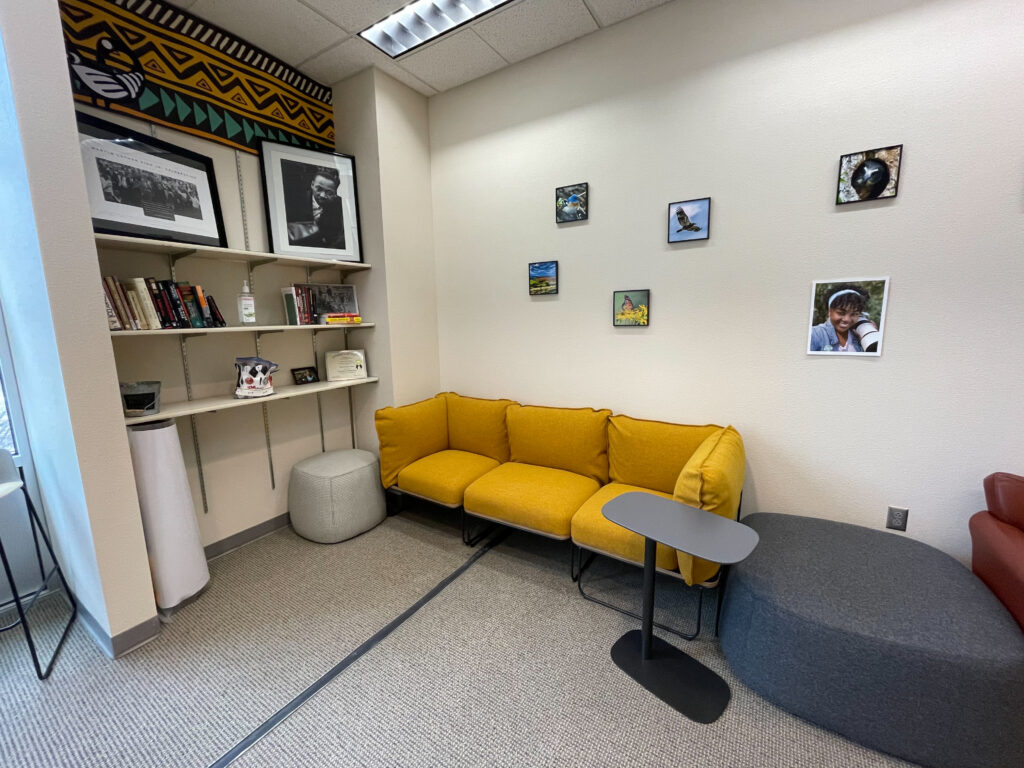After an almost 50-year absence, a new Black Cultural Center has opened in the ISUB at the University of Idaho
“It’s taken a lot of years, 48 years we’re talking about, since that first house got put down,” Black Student Union President Narcisse Mubibya said. “It’s been a struggle for the Black Student Union, or just the Black student in general, to find a place to get together, at least in the area like Moscow, where there is not a lot of people of color.”
The 2020 fall census reports UI’s student population of Black students being at 1%. Of the 8,453 students enrolled at the time, only 89 were Black.
“A lot of students of color will come from places where we have community of other people of color,” Mubibya said. “When you come to a place like Moscow, you don’t find that. So we bring this place as a home, as a family, you can come in here and be yourself.”
The original center that was located at 706 Deakin St. was rented as a place for BSU to meet. This center was torn down as it sustained damage during the winter of 1972.

Mario Pile, director of the new center, discussed the importance of the opening. He said that these spaces are for inclusion to bring people together rather than separating Black students at UI campus.
“What it means to me is, it’s the spirit of community, it’s being able to find blackness as okay,” Pile said. “A place to just be able to resonate with something that looks like you (and) that’s something that feels like home.”
One of the important aspects that Pile highlighted was communication with the BSU.
“We want to partner with and collaborate with every single student organization on campus, even with white male fraternities. I would love to see a day where a white male fraternity invites all the different cultural centers to do an event together,” Pile said. “It’s going to take all of us, so figuring out ways to celebrate each other, which means participating and showing up and learning and being okay with being uncomfortable.”
Pile said that getting to know each other is the first step toward understanding each other, before fighting for social change.
“You don’t have to be the same skin tone as myself. You don’t have to identify as I do. You just have to be there and feel for me and I’ll feel for you,” Mubibya said. “That’s where we connect and just start with reaching out.”
Daniel V. Ramirez can be reached at arg-news@uidaho.edu or Twitter @DVR_Tweets
